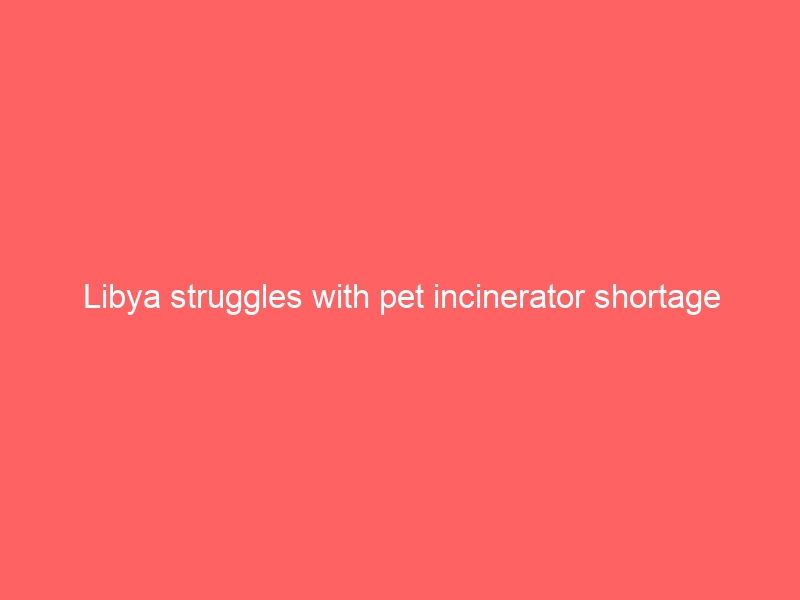Libya is facing a pet incinerator shortage as the country’s animal population continues to grow. With limited resources and infrastructure, the country is struggling to properly dispose of deceased pets, leading to potential health and environmental hazards.
Challenges of growing animal population
In recent years, Libya has seen a significant increase in the number of domestic pets, including dogs and cats. This population growth has put a strain on the country’s already limited resources for animal care and disposal.
Unfortunately, many pet owners are unable to afford proper burial or cremation services for their deceased animals, leading to a rise in unauthorized and unsanitary disposal methods.
Impact on public health and environment
The lack of proper pet incineration facilities has led to potential health and environmental hazards in Libya. Improper disposal of deceased pets can contaminate water sources and soil, leading to the spread of diseases and posing a threat to public health.
In addition, the practice of abandoning deceased pets in public areas has become a common sight, further exacerbating the environmental impact of the growing animal population.
Government efforts and solutions
The Libyan government is currently working to address the issue of pet incinerator shortages and the growing animal population. Efforts are being made to increase public awareness of responsible pet ownership and proper disposal methods for deceased animals.
In addition, the government is seeking international assistance to improve pet incineration facilities and infrastructure in the country. This includes efforts to provide training and resources for proper waste management and disposal in order to mitigate the environmental and health impacts of the growing animal population.
Conclusion
Libya’s struggles with pet incinerator shortage amid a growing animal population highlight the need for comprehensive and sustainable solutions to address the issue. It is crucial for the government and international organizations to work together to improve pet incineration facilities and promote responsible pet ownership in order to protect public health and the environment.








